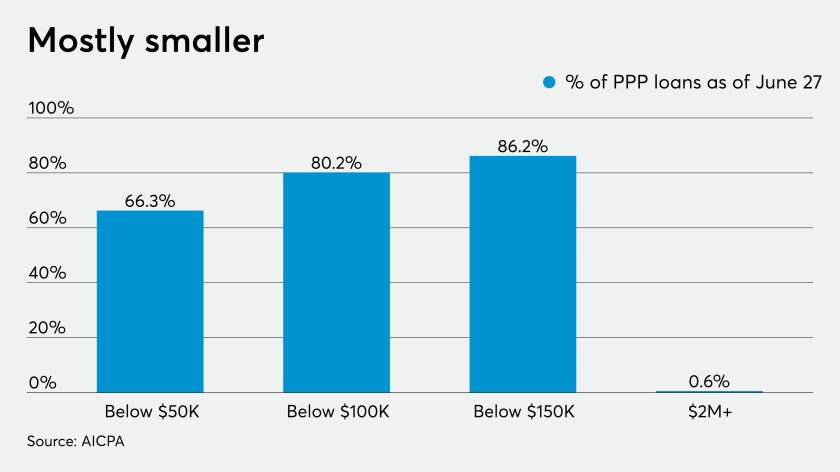Universities are facing the same uncertainties as any other business during the coronavirus pandemic. This is especially true for universities that cater to international students.
Relations between the U.S. and China are deteriorating by the day, complicating a major international education corridor and dumping an unwelcome challenge on companies that process students' tuition payments and other transactions. There’s rising pressure on the agents that connect students and their families in the U.S. and China to universities in both countries.
“As you can imagine at a time like this when it’s chaotic, the agent is more important,” said Ryan Frere, executive vice president of payments for Flywire, a Boston-based fintech that processes international transactions for education payments and other purposes. “They have the relationship with the student and the families.”
The number of Chinese students enrolled in U.S. universities nearly tripled during the 2010s, reaching more than 360,000, according to Statista. This created a boom for companies that process payments for tuition and other fees. As the pandemic accelerated in China in January, there were about 12,000 U.S. students attending university in China, according to NBC. A total of 341,000 U.S. students study abroad, according to the National Association of International Educators.
As recently as Wednesday morning, the U.S. ordered the temporary closure of China’s consulate in Houston, highlighting the difficulty for people traveling between the two countries for education or other purposes. The closure follows more than three years of tension over trade, China’s new “security law,” and finger-pointing over the coronavirus. A brief threat by the Trump administration to ban international students from staying in the U.S. if attending online-only classes creates a further chilling effect on those students.
Before the pandemic, universities were accustomed to using bank transfers with recruitment agents to manage tuition and other fees, according to Jon Santangelo, head of the international department for the Beijing Overseas Study Service Association, an education agency in China that represents about 300 agents who recruit and consult with students for international study, as well as providing other go-between services. These agents coordinate payments to the educational institution.
As the time comes for businesses to apply for PPP loan forgiveness, CPAs can provide vital assistance to ensure success for their clients.
Senate Majority Leader Mitch McConnell on Wednesday closed off chances that the Senate would pass anytime soon a House bill that would give most Americans $2,000 stimulus payments.
The initial direct deposits of the second round of economic impact payments are already going out to taxpayers.
“U.S. banks, especially smaller and local institutions, were not used to handling vast numbers of transactions from abroad as a result of students being stuck outside of their country,” Santangelo said.
For secondary-school-age students who will defer or opt out of study abroad entirely, a high number are trying to secure enrollment in international schools in China as a last-minute solution, Santangelo said. “Some universities with ties to counterparts in China are planning to utilize rooms with facilitators for distance learning. Given this year’s accelerated digitization, both educators and agents are more familiar with new uses of technology.”
The quick adjustments change routing for fees and other payments. Flywire this week introduced enhancements to its gateway to improve tracking and fraud controls for educational recruitment agents. It also entered a partnership with BOSSA to provide foreign exchange services for students and universities, as well as provide regulatory cover for data and ID protection.
With BOSSA, Flywire is using the mix of open banking partnerships and local third-party relationships that have helped it expedite international transactions for other purposes, such as medical equipment. “Agents abroad will also be able to monitor their commissions and payments from partner educators,” Santangelo said.
Colleges that transferred most of their students to online learning in the spring as the coronavirus accelerated are now grappling with how to manage the upcoming semester. Most universities are working on a hybrid model in which some students will be on campus and some remote or online, depending on the course of study or the student's year. The focus is on reducing crowding in dorms and campus buildings, using digital options wherever possible.
These changes impact technology companies that rely on smaller retail payments at on-campus stores and businesses near colleges that rely on university business.
“Students are moving from campus, they’re restricting access to dining halls. And the students are moving their meal plans,” said Jamie Marshall, co-founder and COO of Snackpass, a three-year-old San Francisco food-ordering startup that has its roots in college campuses and surrounding communities. “Having a contactless solution will be vital as universities reopen.”
Snackpass supports digital ordering, payments and incentive marketing — including a social tool that allows users to “gift” points along with related messaging. The app is active at 14 college campuses, and Snackpass has set a goal of reaching 100 by the end of 2021. It recently drew a $21 million Series A funding round from Andreessen Horowitz and other investors.
The startup has added a digital menus feature for contactless ordering and pickup, charging a 7% fee to the restaurants, which is a discount from the average fee of about 20% that restaurant delivery apps typically charge. Snackpass reports “several hundred” restaurants have signed up for the app since launch.
“The social layer has incentivized people to make purchases on top of the ‘points,'" said Jonathan Cameron, another Snackpass co-founder. “That’s better than just enabling the payment.”






